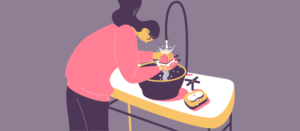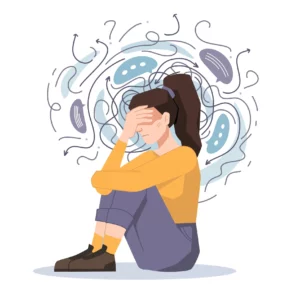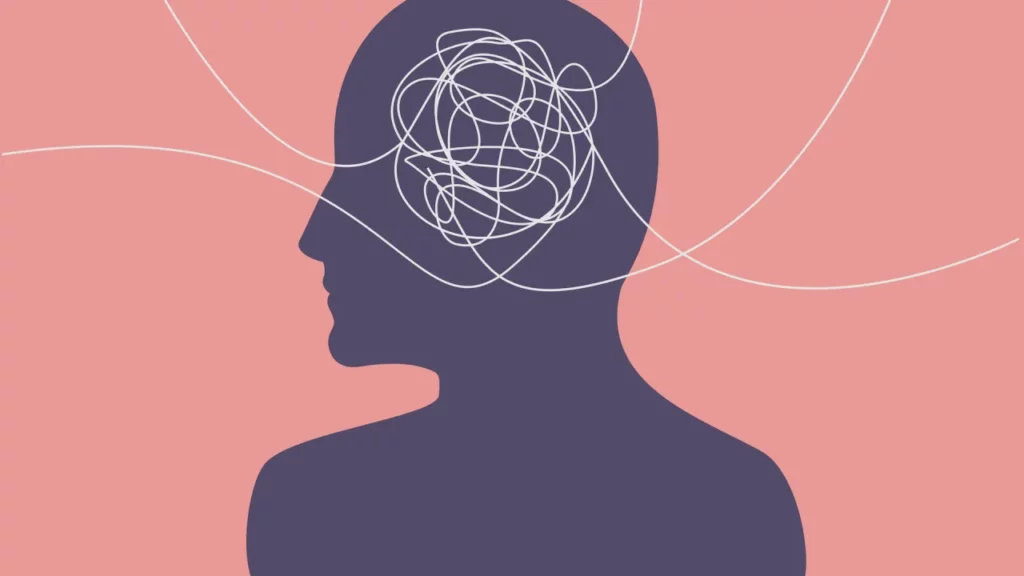There are many different types of OCD, all of which can be quite debilitating for those who suffer from them. In this blog post, we will discuss the various types of OCD. Each type has its own unique set of symptoms, but they all share one commonality: they cause immense suffering for those who have to deal with them. If you think you may be suffering from OCD, please read on to learn more about these types and how to get help.
Contents
Types Of OCD

Based on the nature of the symptoms experienced and the subject of the receiving end of the obsessions and compulsions, OCD can be divided into different subtypes.
Contamination OCD
This type is an obsession with germs, dirt, and other contaminants. People with contamination OCD often have a fear of contracting illnesses or passing them on to others. They may engage in excessive hand-washing, cleaning, and disinfecting. They may also avoid touching people or objects that they perceive as being contaminated.
Hoarding OCD
Hoarding OCD characterizes itself by an intense fear of losing or throwing away items, even if those items are useless or clutter the home. People with this type of OCD may hoard garbage, clothes, paperwork, or even animals. They may have difficulty getting rid of anything, even if it’s no longer needed or wanted. The hoarded items may take up so much space that it’s difficult to move around the home or even use furniture.
Checking OCD
This type is characterized by an obsession with making sure that things are safe or in order. People with checking OCD may have fears of fires, burglaries, accidents, or injury. They may repeatedly check doors and windows to make sure they’re locked, check appliances to make sure they’re turned off, as well as check their own bodies for signs of illness or injury.
Ordering/Symmetry OCD
This type of OCD is characterized by a need for things to be in a certain order or symmetry. People with ordering/symmetry OCD may have obsessive thoughts about numbers, colors, patterns, as well as arrangements. They may spend hours making sure everything is arranged perfectly, and they may become extremely upset if something is out of place.
Self-Control OCD

This is characterized by an obsession with controlling one’s thoughts, impulses, or emotions. People with self-control OCD may have obsessive fears of acting on violent or sexual urges. They may try to suppress their thoughts or impulses through compulsive rituals such as the mental rehearsal or repeating certain words or phrases.
OCD About Sin, Religion, Morality
This is caused by an obsession with right and wrong, morality, and religious beliefs. People with this type of OCD may have obsessive fears of committing a provides or being punished for their transgressions. They may engage in compulsive rituals such as prayer or confession to try to alleviate their fears.
Forbidden/Intrusive Thoughts OCD
This category is an obsession with taboo or forbidden thoughts. People with this type of OCD may have obsessions about sex, violence, or other topics that they deem to be inappropriate. They may try to suppress their thoughts through compulsive avoidance behaviors or mental rituals such as prayer or counting.
Rumination OCD
This gets characterized by an obsession with one’s thoughts or mental processes. People with rumination OCD may have obsessive fears of forgetting important information or making mistakes. They may engage in compulsive behaviors such as repeating certain words or phrases, writing things down, or mentally reviewing information to try to prevent these feared outcomes.
Hitting Bottom OCD
This category is defined by an obsession with the fear of hitting the bottom. People with this type of OCD may have obsessions about losing their job, becoming homeless, or going bankrupt. They may also engage in compulsive hoarding or stockpiling behavior in an attempt to prepare for the worst-case scenario.
When To Seek Help?
The severity of OCD symptoms can vary in intensity and frequency. If anyone ever experiences any changes or similarities to these patterns, you can approach a mental health professional to talk about them.
However, when the symptoms start coming in the way of your day-to-day functioning, it can be problematic and stressful. Some common signs of symptoms interfering with your daily life include instances such as:
- the obsessions or compulsions take up more than an hour of your day
- intrusive thoughts or your efforts to suppress them cause distress
- the symptoms make you feel upset or distressed
- OCD symptoms further get in the way of your daily routine
- Your relationships start having a negative effect
Diagnosis Of OCD
Obsessions are thoughts, images, or ideas that won’t go away, are unwanted, and cause major distress. Compulsions are behaviors that you feel you have to carry out over and over again to relieve your anxiety. When these two behaviors combine over a specific object/thought/situation, it can cause disturbances, hyperfixations, and aversions from daily life happenings. This interference needs clinical intervention as well as therapeutic management.
A mental health professional will ask you questions about your thoughts, feelings, and behaviors. They will also ask you about any family history of mental health disorders. They may use a questionnaire to help diagnose OCD. The most common one is the Yale-Brown Obsessive-Compulsive Scale (Y-BOCS). This scale measures the severity of your symptoms and how much they interfere with your life. Your mental health professional may also use other tests, such as the Minnesota Multiphasic Personality Inventory (MMPI), to rule out other disorders.
Conclusion
There are many different types of OCD, and each one characterizes by its own unique set of obsessions and compulsions. If you think you might have OCD, it’s important to seek professional help. A qualified mental health professional can assess your symptoms and provide you with the treatment you need to further manage your condition.
If you are looking for affordable Online OCD Counseling MantraCare can help: Book a trial OCD therapy session


